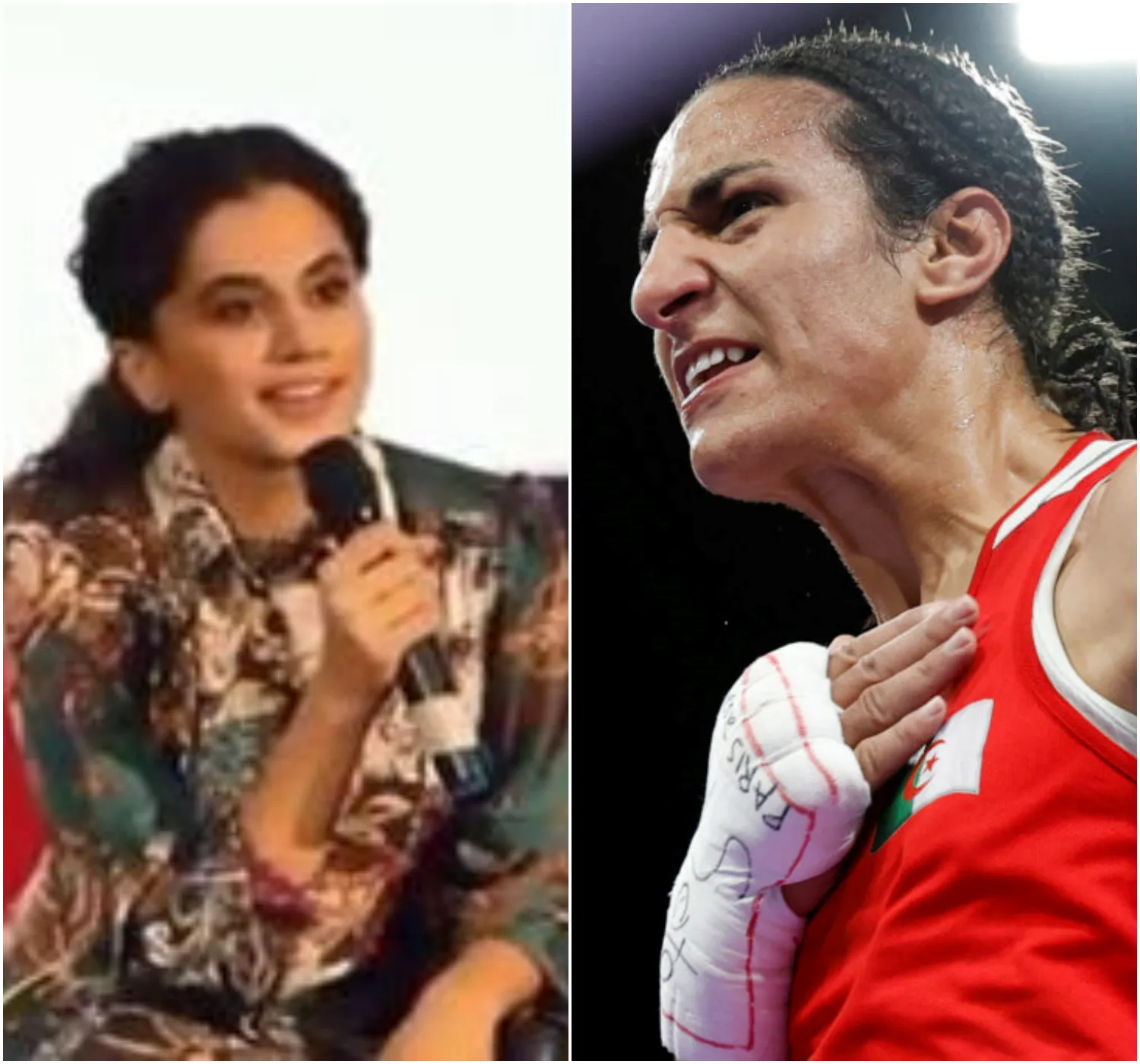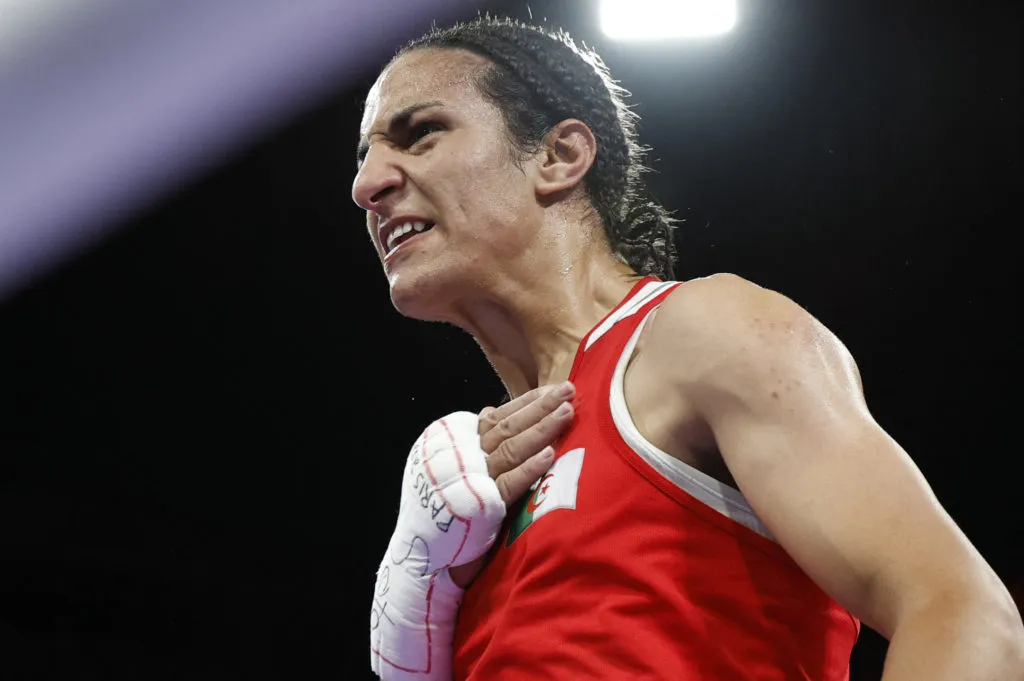In a passionate display of support for Algerian boxer Imane Khelif, Bollywood actress Taapsee Pannu has sparked a significant conversation about fairness in sports and the scrutiny athletes face regarding their natural abilities. Khelif, known for her exceptional talent and advocacy for women’s boxing, has recently been at the center of controversy concerning the implications of biological advantages in competitive sports. Pannu’s remarks highlight not only Khelif’s plight but also raise important questions about the treatment of athletes across disciplines.
Context: The Controversy Surrounding Imane Khelif
Imane Khelif has made headlines for her remarkable achievements in boxing, but her journey has not been without obstacles. As an outspoken advocate for women’s rights and equality in sports, Khelif has faced criticism and allegations questioning her natural athletic advantages. This scrutiny is not new; female athletes, particularly those who excel in traditionally male-dominated sports, often find themselves under the microscope.

The controversy intensified when Khelif’s performance drew comparisons to other prominent athletes who have also faced similar accusations. Critics argue that her biological advantages may provide an unfair edge, leading to calls for disqualification or further investigation. However, the question remains: where do we draw the line when assessing natural talent versus unfair advantages?
Taapsee Pannu’s Powerful Statement
In response to the ongoing discussions, Taapsee Pannu took to social media to voice her support for Khelif. In her post, she highlighted the inconsistencies in how athletes are judged based on their physical attributes. Pannu stated, “Usain Bolt and Michael Phelps had natural biological advantages. Why weren’t they banned?” Her remarks resonated with many who feel that the discourse surrounding Khelif is not only unfair but also discriminatory.
Pannu’s comments shine a light on the broader issue of biological advantages in sports. Usain Bolt, known for his unparalleled speed, and Michael Phelps, the most decorated Olympian of all time, are celebrated for their achievements, yet their unique physical attributes—Bolt’s long stride and Phelps’s extraordinary wingspan—have been acknowledged as significant factors in their success. Yet neither athlete faced the scrutiny that Khelif currently does, prompting questions about the standards used to evaluate athletes’ performances.
The Broader Implications
Pannu’s support for Khelif goes beyond a single athlete’s situation; it reflects a larger issue in sports concerning gender, race, and the expectations placed on female athletes. Women in sports often battle not only their opponents but also societal perceptions that scrutinize their abilities and question their legitimacy. By advocating for Khelif, Pannu emphasizes the importance of recognizing talent without bias and encourages a more inclusive dialogue around women in sports.
Moreover, the question of biological advantages is a complex one that transcends individual sports. The International Olympic Committee (IOC) and various sporting bodies have struggled to create fair policies regarding athletes’ natural advantages, particularly concerning gender identity and hormone levels. This complexity complicates the conversation surrounding Khelif and invites further examination of how we define fairness in competitive sports.
A Call for Unity and Fairness
Pannu’s remarks have resonated widely, with many fans and fellow athletes expressing solidarity with Khelif. In a time when female athletes are fighting for equality and recognition, support from influential figures like Pannu can amplify their voices and highlight the challenges they face.
Khelif has expressed gratitude for the support, stating that it empowers her to continue her advocacy for women’s rights in sports. “I believe in fair competition, and I will not be silenced by the scrutiny I face,” she said in a recent interview. Khelif’s resilience and determination, coupled with Pannu’s advocacy, could lead to meaningful conversations about the treatment of athletes and the nature of competition.
Conclusion
Taapsee Pannu’s strong support for Imane Khelif has opened the door to a crucial discussion about fairness, biological advantages, and the treatment of female athletes in sports. As Khelif continues to navigate the challenges she faces, the dialogue ignited by Pannu’s remarks is a timely reminder of the need for equality and understanding in the world of athletics.
In a landscape where the achievements of women are often overshadowed by scrutiny and bias, the collective voices advocating for Khelif and others like her are vital. This conversation is not just about one athlete; it’s about reshaping the narrative surrounding women in sports, ensuring that their talents are recognized and celebrated without prejudice. As the sports community reflects on these issues, the hope is that progress will follow, leading to a more inclusive and equitable environment for all athletes.